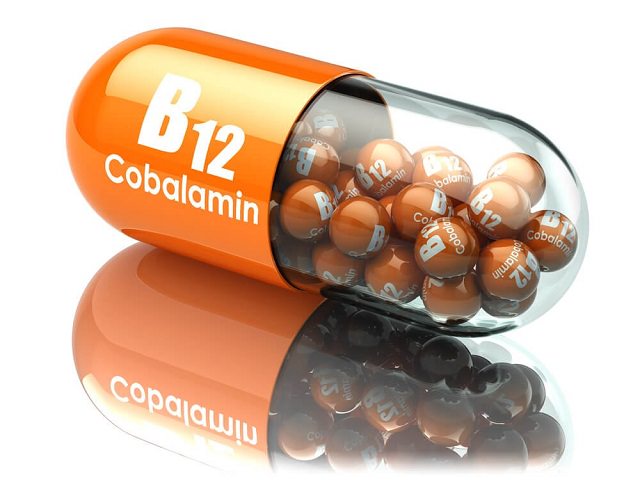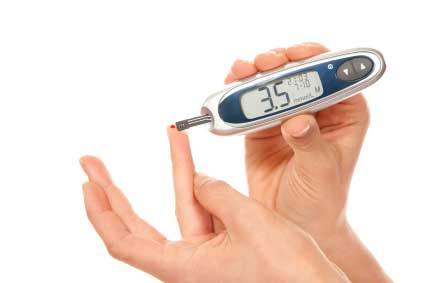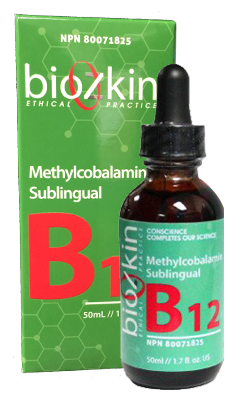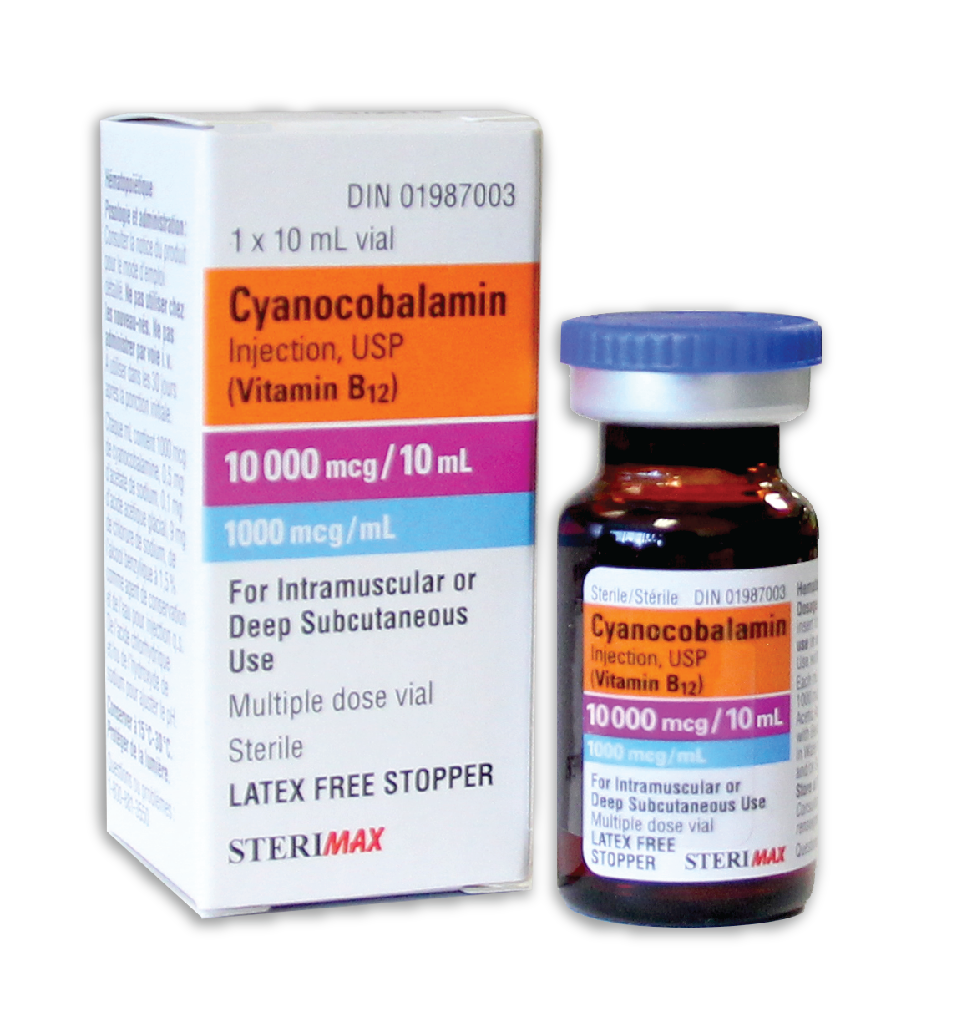 Research study done by the Tufts University in Boston reveals that 39% of participants have the low normal range of B12 level in their bodies. Most of the participants don’t even aware. Initial signs and symptoms can be subtle. (fatigue, low energy level, shortness of breath)
Research study done by the Tufts University in Boston reveals that 39% of participants have the low normal range of B12 level in their bodies. Most of the participants don’t even aware. Initial signs and symptoms can be subtle. (fatigue, low energy level, shortness of breath) B12 is an important cofactor which is required in numerous of our body functions. It’s required for red blood cells production, brain and nerve function, DNA production and metabolism. B12 deficiency can be caused by pernicious anemia, Crohn’s and Celiac disease, vegan diet (no animal products), chronic heavy drinking and some medications as follows:
B12 is an important cofactor which is required in numerous of our body functions. It’s required for red blood cells production, brain and nerve function, DNA production and metabolism. B12 deficiency can be caused by pernicious anemia, Crohn’s and Celiac disease, vegan diet (no animal products), chronic heavy drinking and some medications as follows: Medications that increase the stomach pH: e.g. Pariet, Pantoloc, Losec, Prevacid, Ranitidine, Famotidine
Medications that increase the stomach pH: e.g. Pariet, Pantoloc, Losec, Prevacid, Ranitidine, Famotidine Diabetic medication: Metformin
Diabetic medication: Metformin Gout medication: Colchicine
Gout medication: ColchicineHealthy eating is important to for healthy levels of B12.
 Choose food sources that are rich in vitamin B12 (e.g. meat, whole egg, fortified breakfast cereals. The dietary supplement is also a good alternative. Our clinical team suggests:
Choose food sources that are rich in vitamin B12 (e.g. meat, whole egg, fortified breakfast cereals. The dietary supplement is also a good alternative. Our clinical team suggests:
 Sublingual form of b12 (methylcobalamin)- place under the tongue and absorbed through the oral mucosa. Hold for about 10 to 20 seconds before swallow.
Sublingual form of b12 (methylcobalamin)- place under the tongue and absorbed through the oral mucosa. Hold for about 10 to 20 seconds before swallow. For people who has failed oral b12, injectable form of vitamin B12 would be an appropriate option. Dose is usually 1000mcg (1ml) per dose. Frequency varies depending on each individual’s lab result and clinical response to the injection.
For people who has failed oral b12, injectable form of vitamin B12 would be an appropriate option. Dose is usually 1000mcg (1ml) per dose. Frequency varies depending on each individual’s lab result and clinical response to the injection.

0 comments:
Post a Comment